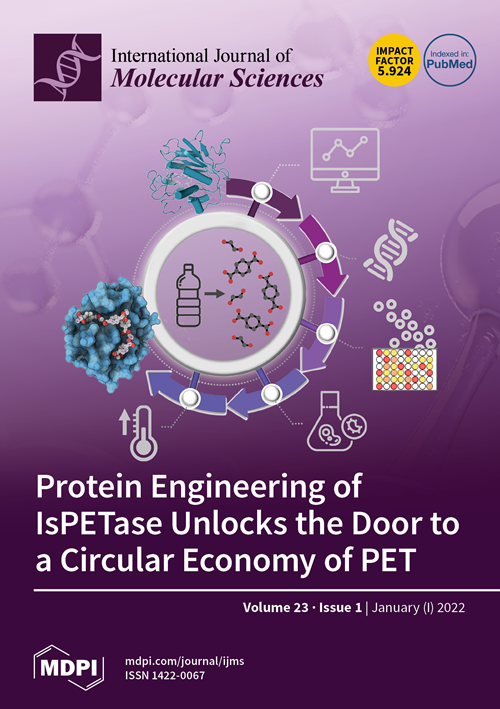The AlkB Homolog SlALKBH10B Negatively Affects Drought and Salt Tolerance in Solanum lycopersicum
IF 4.9
2区 生物学
Q1 BIOCHEMISTRY & MOLECULAR BIOLOGY
引用次数: 0
Abstract
ALKBH proteins, the homologs of Escherichia coli AlkB dioxygenase, constitute a single-protein repair system that safeguards cellular DNA and RNA against the harmful effects of alkylating agents. ALKBH10B, the first discovered N6-methyladenosine (m6A) demethylase in Arabidopsis (Arabidopsis thaliana), has been shown to regulate plant growth, development, and stress responses. However, until now, the functional role of the plant ALKBH10B has solely been reported in arabidopsis, cotton, and poplar, leaving its functional implications in other plant species shrouded in mystery. In this study, we identified the AlkB homolog SlALKBH10B in tomato (Solanum lycopersicum) through phylogenetic and gene expression analyses. SlALKBH10B exhibited a wide range of expression patterns and was induced by exogenous abscisic acid (ABA) and abiotic stresses. By employing CRISPR/Cas9 gene editing techniques to knock out SlALKBH10B, we observed an increased sensitivity of mutants to ABA treatment and upregulation of gene expression related to ABA synthesis and response. Furthermore, the Slalkbh10b mutants displayed an enhanced tolerance to drought and salt stress, characterized by higher water retention, accumulation of photosynthetic products, proline accumulation, and lower levels of reactive oxygen species and cellular damage. Collectively, these findings provide insights into the negative impact of SlALKBH10B on drought and salt tolerance in tomato plant, expanding our understanding of the biological functionality of SlALKBH10B.AlkB 同源物 SlALKBH10B 负向影响番茄的耐旱性和耐盐性
ALKBH 蛋白是大肠杆菌 AlkB 二氧化酶的同源物,它构成了一个单蛋白修复系统,可保护细胞 DNA 和 RNA 免受烷化剂的有害影响。ALKBH10B 是拟南芥(Arabidopsis thaliana)中首次发现的 N6-甲基腺苷(m6A)去甲基化酶,已被证明能调节植物的生长、发育和胁迫反应。然而,到目前为止,植物 ALKBH10B 的功能作用仅在拟南芥、棉花和杨树中有所报道,其在其他植物物种中的功能影响仍是个谜。本研究通过系统发育和基因表达分析,鉴定了番茄(Solanum lycopersicum)中的 AlkB 同源物 SlALKBH10B。SlALKBH10B表现出广泛的表达模式,并受到外源脱落酸(ABA)和非生物胁迫的诱导。通过使用 CRISPR/Cas9 基因编辑技术敲除 SlALKBH10B,我们观察到突变体对 ABA 处理的敏感性增加,与 ABA 合成和响应相关的基因表达上调。此外,Slalkbh10b突变体对干旱和盐胁迫的耐受性增强,表现为更高的保水性、光合产物积累、脯氨酸积累以及更低水平的活性氧和细胞损伤。总之,这些研究结果揭示了 SlALKBH10B 对番茄耐旱和耐盐性的负面影响,拓展了我们对 SlALKBH10B 生物功能的认识。
本文章由计算机程序翻译,如有差异,请以英文原文为准。
求助全文
约1分钟内获得全文
求助全文
来源期刊

International Journal of Molecular Sciences
Chemistry-Organic Chemistry
CiteScore
8.10
自引率
10.70%
发文量
13472
审稿时长
17.49 days
期刊介绍:
The International Journal of Molecular Sciences (ISSN 1422-0067) provides an advanced forum for chemistry, molecular physics (chemical physics and physical chemistry) and molecular biology. It publishes research articles, reviews, communications and short notes. Our aim is to encourage scientists to publish their theoretical and experimental results in as much detail as possible. Therefore, there is no restriction on the length of the papers or the number of electronics supplementary files. For articles with computational results, the full experimental details must be provided so that the results can be reproduced. Electronic files regarding the full details of the calculation and experimental procedure, if unable to be published in a normal way, can be deposited as supplementary material (including animated pictures, videos, interactive Excel sheets, software executables and others).
 求助内容:
求助内容: 应助结果提醒方式:
应助结果提醒方式:


